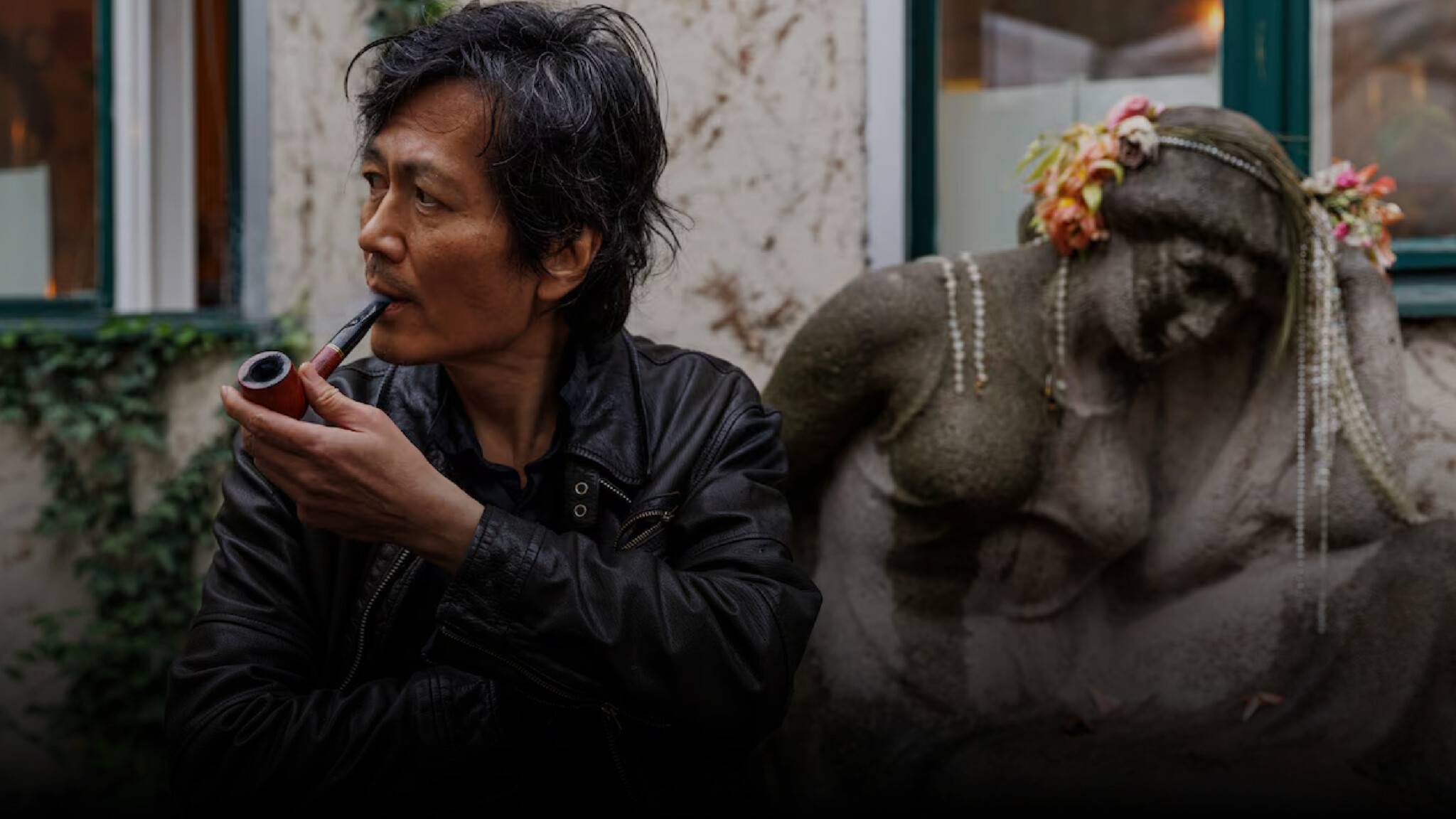
‘Power depends not on the possession of the means of production but on access to information that is used for psychopolitical surveillance and the control and prediction of behaviour.’
– Byung Chul-Han, Infocracy: Digitization and the Crisis of Democracy (2022).
Byung Chul-Han, South Korean philosopher living in Germany, is a prolific author. His publishing rate over the last decade exceeds two books per year. His slim volumes tackle issues ranging from neoliberalism to eros; his ‘specialization’, if one can pin it down, is the human condition in the digital age, particularly under liberal democracy. The infectious spread of harmful ideological falsehoods on the Internet which leads to the development of high-conformity political movements, is, for Han, a threat to the mental integrity of social media users. Similarly, the invasive ubiquity of data-collecting actors, from States to monolithic companies, constitutes a subtle form of violence. Han is particularly interested in discussing the ways which this often imperceptible assault on the minds of digital subjects can affect human flourishing, community integrity, mental health, and relationships. One of his most popular books is his early work The Burnout Society (2015), in which he argues that the current epidemic of mental illnesses like ADHD and depression are not immutable, Platonic characteristics which cannot be resolved but only medicated for ever; rather, he notes how an environment of superficial and non-teleological ‘self-improvement’, meaningless ‘email job’ work, and the religion of corporate success can engender these forms of mental suffering. For this reason and many others, his popularity is fairly encouraging, even consolatory: after all, how totalizing can such ideological violence be if there is serious demand in the marketplace of ideas for Han’s words?
Enjoy independent, ad-free journalism - delivered to your inbox each week
This is not to say that Han is an ideal philosopher for our times. If such a philosopher exists, he is more head-on and unsparing in his critiques than Han, who tends to prefer vagueness at the expense of political acuity and case-specific detail. In his 2022 book Infocracy, Han goes some of the way in critiquing digital encroachment upon freedom of thought — the digital panopticon, if you will. He elegantly coins a new term of surveillance, responding to Foucault and updating his concept for the digital age:
‘The biopolitical regime inserts the body into a production and surveillance machinery that optimizes it by way of a disciplinary orthopaedics. The information regime, whose emergence Foucault appears to have missed, does not pursue a biopolitical agenda. It is not interested in the body. It seizes the psyche by way of a psychopolitics.’
But Han does not proceed to pin down exactly why, and in the service of what, this ‘psychopolitics’ is implemented. He is more interested in the how: he notes how smartphones, which we carry with us wherever we go, are the perfect tools for data collection, obliterating the public-private divide without users even noticing or caring. He is right to point out the insidiousness of digital surveillance and the strange perversion of old norms: smartphone users give their consent over to their all-seeing, all-knowing providers. This gets to the heart of the concept of capitalistic totalitarianism, as conceived by Walter Benjamin and his contemporaries, and it deserves to be heard. Free market capitalists in the conservative world could do more to challenge the invasiveness of tech on principle as well as in practice.
But Han seems to claim that this panopticon exists for its own sake, without a specific, politicized cultural agenda which can be diagnosed:
‘The dataism of the information regime has totalitarian characteristics. Its aim is total knowledge, but the total knowledge of dataism is achieved not through ideological narration but through algorithmic operations. The aim of dataism is to compute all there is and all there will be. Big data does not recount.’
Han’s distinction between the ‘dataist’ practices of companies like Apple and the ideological ‘narratives’ which political actors deploy to keep the masses in thrall is a false one. Across Europe and the UK, States have passed highly invasive legislation to allow for people to be arrested in their own homes for posting on Facebook or X sentiments which the State considers to be ‘hate speech’. ‘Non-Crime Hate Incidents’ are also logged against British citizens, sometimes without their knowledge, staining their reputations for infractions which might merely boil down to ‘being perceived to offend someone’ on the grounds of group characteristics; as people continue to freely post their honest thoughts online, the likelihood that this will be used against them by an activistic State only grows. Big tech and its panopticon has become an agent of real-life imprisonment. The story of Caroline Farrow, mother of five, church organist, and gender-critical semi-activist perfectly illustrates how concrete the ramifications of such policies are: Farrow was serving her children supper when police forced entry into her home, seized her digital devices, and vaguely threatened arrest. Her sins? Referring to transgender woman as ‘he’ on Twitter and posting in online communities known for their objection to transgender activism.
The story of Caroline Farrow, mother of five, church organist, and gender-critical semi-activist perfectly illustrates how concrete the ramifications of such policies are: Farrow was serving her children supper when police forced entry into her home, seized her digital devices, and vaguely threatened arrest. Her sins? Referring to transgender woman as ‘he’ on Twitter and posting in online communities known for their objection to transgender activism.
Hers is hardly a unique tale. More recently, and even more worryingly, Keir Starmer’s Labour government tracked down dozens of Britons whose anger was justly incited by the horrific slaughter of young girls by Islamist terrorist Axel Rudakubana in Southport. Some people posted vague statements about the danger of Islam and the failure of the government to protect its citizens, without actually participating in any kind of physical protest, which was enough for them to be seized by the state and fast-tracked into prison cells. Meanwhile, the truth about Rudakubana’s Islamist radicalisation online was unacknowledged by the British government for as long as feasibly possible. Outrageously, the grounds of these arrests included the argument that there was no way for the public to know — and no justification in suspecting — that the perpetrator was an Islamist. Ideological ‘narrative’ and ‘knowledge’ of people’s online activities, transgressive beliefs (in the eyes of the anti-racist, ideologically captured State), and private lives are intertwined in late capitalistic regimes in the West. Southport, which postdates the book, is by no means the first instance of this: MI5’s ‘Prevent’ program has been viciously expanding to target ‘far right’ online activity (which seem to subsist mostly in edgy group chats between teenage boys) for years, since it is embarrassed that the bulk of its caseload is Islamist extremist activity. The result is an obvious overstep of the surveillance of online ‘extremism’ which was implemented in the years following 9/11 (and the 2005 London attacks in the UK) throughout the West.
Han’s thesis is cleverly phrased, but ultimately fails to confront this uncomfortable truth. This is not the only case of such avoidance. He has previously come close to discussing woke excesses and its threat to freedom, but often falls short of being explicit or pointing out the most pernicious forms of ‘positive violence’ (or ideological capture and its consequences). For instance, he critiques the superficiality and biological invasiveness of gendered self-actualization in The Burnout Society without noting its most contagious current form: trans.
‘The Western achievement society subjects not just women or the working class but all of its members to compulsion. […] Men as well as women undergo cosmetic operations today in order to remain competitive on the market […] It doesn’t just produce Botox, silicone, and beauty zombies but also muscle, anabolic steroid, and fitness zombies. As a doping society, the society of achievement knows no class or gender differences.’
This is technically true, but fails to notice statistics on who is administering these physical changes to themselves in the most significant numbers, and how relatively harmful different kinds of cosmetic operations are. The unique harm of sex-reassignment therapies and surgeries, particularly administered to young, confused, politically zealous people goes unmentioned. Of what use is pointing out the obvious here? Han deals primarily in abstractions which respond to palpable trends in State and corporate behaviors. To attack shadowy, Leviathan-like organizations for their encroachment upon individual freedom and integrity is to do something entirely uncontroversial. People from all political sides enjoy vilifying ‘Big [insert noun here]’, from big tech to big pharma to governments and companies. They have good reason to. But the specific dangers of having personal data collected by governments need to be sorted from vague fears of future oppression and political surveillance.
Help Ensure our Survival
Han’s latest book, The Spirit of Hope (2024), is Han at his most vague. He opens with the observation that ‘A spectre is haunting us: it is fear.’ He is brave enough to point out that the climate crisis is a crucial crisis whose devastating implications are being used to frighten the populace and keep them dependent on news cycles, and languishing in a pit of existential despair. And yet there is no mention in the book of groups like Extinction Rebellion or Just Stop Oil, whose apocalyptic rhetoric is the very kind of manipulation which Han identifies as preying on fear. His distinction between optimism and hope is useful, and he gracefully calls for ‘contemplative thinking’ as opposed to the chauvinism of absolute certainty in a time of information influx — something which seems to baffle people more than inform them. ‘The spirit of hope is an onwards striving’, he reminds us, which ‘keeps working away amid darkness’. There is even a hint of Nietzsche in his positive regard for struggle between darkness and light, or fruitful conflict as opposed to falsified, superficial harmony. But, again, he approaches existential matters only to shy away from their substance: referring to the apocalyptic film Children of Men (which adapts P. D. James’ excellent novel about a catastrophic fertility crisis), he describes the story as though it is an allegory for the forces of depression and exhaustion. There is a real, ongoing fertility crisis which has a lot to do with the environmental conditions we’ve created for ourselves in the West. This crisis is likely upstream of several of the mental illnesses on which Han fixates. The birth rate crisis also carries real, cataclysmic societal implications: the replacement of native Western populations, the loss of myriad cultures and languages, the economic collapse of greying populations with too many elderly to look after than there are young people to work, and so on. But Han makes no mention of ‘fertility’ in the book. He does, however, refer to ‘birth’ in an allegorical sense several times: ‘Following Nietzsche, we may understand hope as a specific state of mind that is akin to pregnancy. To hope means to be ready for the birth of the new.’ What this ‘new’ might actually be is up to the reader to imagine.
It is not strictly bad that Han invites his readers to think about the political implications of his philosophy for themselves. But one might be forgiven for finding the repeated platitude that ‘hope looks ahead’ and ‘fights the darkness’ slightly uninspiring.




Comments (0)
Only supporting or founding members can comment on our articles.